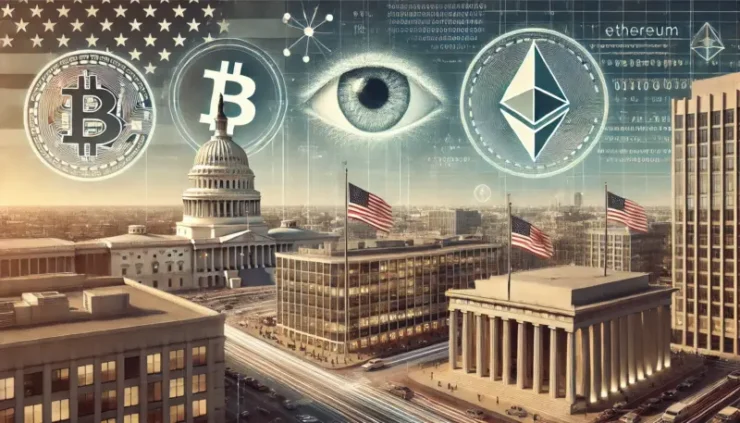Donald Trump has positioned himself as the first “crypto president,” promising to reverse years of regulatory hostility toward digital assets. His administration moved quickly, with an executive order on January 23 to foster the growth of digital assets while ensuring financial freedom.
The order underscored the importance of self-custody and uncensored transactions, but these promises have run into immediate challenges from entrenched financial surveillance laws.
The most formidable barrier remains the Bank Secrecy Act (BSA) of 1970. This decades-old law, designed to curb money laundering, has evolved into an expansive financial surveillance system that heavily restricts peer-to-peer digital transactions. Despite Trump’s rhetoric on promoting financial liberty, there is little indication that his administration is taking concrete steps to overhaul these regulations.
Financial Surveillance Poses a Challenge to Crypto Transactions
The BSA and its subsequent amendments require financial institutions to report potentially suspicious transactions to the government, effectively deputizing banks, brokers, and even car dealerships as watchdogs.
In 2023 alone, nearly 30 million BSA reports were filed by 300,000 financial institutions. However, only 1,575 cases referred for prosecution involved these filings, and the IRS initiated just 372 investigations based on BSA reports.
This system burdens financial entities heavily, forcing them to over-report out of fear of liability. The effect on crypto transactions is even more pronounced as regulators increasingly push for stricter oversight of blockchain-based payments.
Some lawmakers have proposed extending these financial surveillance laws to digital assets, requiring exchanges and other crypto firms to monitor and report transactions aggressively.
Fourth Amendment Concerns and Legal Challenges
Critics argue that the BSA violates core constitutional rights. The Fourth Amendment generally protects Americans from warrantless searches and seizures, yet under the BSA, financial records held by third parties are excluded from these protections. Justice Neil Gorsuch highlighted this issue in a 2018 dissent, emphasizing that entrusting data to a financial institution should not mean forfeiting constitutional rights.
Trump’s executive order reaffirmed the right to transact freely and maintain financial privacy, yet these protections clash directly with longstanding surveillance mechanisms. Unless his administration actively works to amend the BSA, its provisions will continue to apply, limiting the effectiveness of the order.
Congressional Efforts to Reform the BSA
Some members of Congress have taken steps to restore financial privacy. Rep. John Rose (R-TN) introduced the Bank Privacy Reform Act in the 118th Congress to reaffirm Fourth Amendment protections over financial transactions. Senator Mike Lee (R-UT) followed with the Saving Privacy Act on February 27.
Both bills would maintain record-keeping requirements while eliminating the mandatory reporting framework that compels banks to flag transactions preemptively.
Despite these efforts, the Senate Banking Committee has yet to produce similar legislation, with some members instead calling for expanding surveillance to include crypto transactions. Senator Elizabeth Warren has been among the most vocal critics of the crypto industry, advocating for stricter regulations that could further entrench financial monitoring measures.
Crypto Industry Pushback and Trump’s Role
The crypto industry has ramped up efforts to influence U.S. policymakers, particularly after a series of high-profile failures in 2022 led to heightened regulatory scrutiny. At a San Francisco fundraiser in June 2024, Trump reiterated his commitment to halting the “Biden-Gensler crusade against crypto.” The event raised $12 million, with support from tech investors David Sacks and Chamath Palihapitiya and crypto executives from Coinbase and Gemini.
Yet, Trump has not provided details on how his administration plans to navigate the regulatory framework that continues to hinder the industry. His executive order rescinded the Biden administration’s 2022 guidance on digital assets but did not repeal or alter the financial surveillance laws that fundamentally shape how digital transactions are monitored.
For Trump to fulfill his pledge as the “crypto president,” his administration must work closely with Congress to amend the BSA and related financial monitoring laws. Without legislative changes, the existing framework will continue to constrain the crypto sector, forcing exchanges, developers, and users to comply with broad surveillance requirements.
The President’s Working Group on Digital Asset Markets, established under Trump’s executive order, is expected to submit regulatory recommendations within 180 days. However, with no explicit directive to address the BSA’s impact on digital assets, the likelihood of meaningful reform remains uncertain.





